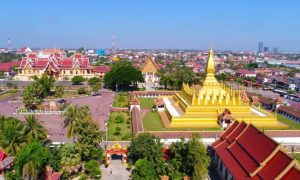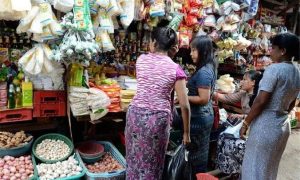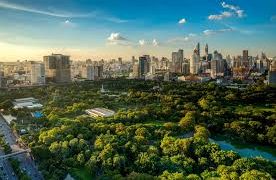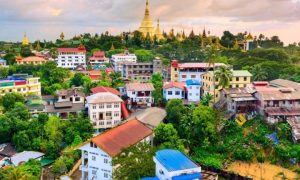Myanmar, as an emerging market in Southeast Asia, is attracting more and more people who choose to move here. Here, you can not only experience a rich culture and diverse landscapes, but also enjoy a relatively low cost of living and fast-growing economic opportunities. However, for those planning toimmigrantsMany questions can be confusing for those traveling to Myanmar. This article will answer some of the most commonMyanmar ImmigrationQuestions to help you better understand the immigration process, living conditions and how to adapt to the local environment.
1. How to applyMyanmar Immigrant Visa?
Question: How do I apply for a visa if I want to immigrate to Myanmar?
Answer: Myanmar offers a variety of visa types, including business visas, work visas, and long-term resident visas. For immigrants, the most common are work visas and investment visas. If you plan to work in Myanmar, you will usually need to apply for a work visa through your employer, which requires a valid employment contract and relevant documents.
An investment visa is a good option for those who plan to invest or start a business in Myanmar. Depending on the amount of investment and the plan, migrants may be granted a visa for up to five years and may even apply for permanent residence in some cases.
Professional Advice: Before applying for a visa, make sure you have a detailed understanding of theMyanmar Immigrationpolicy and have all required documents ready. It is recommended to contact an experienced immigration attorney or counseling service to ensure a smooth application.
2. Immigration to MyanmarWhat is the cost of living in the
Question: What is the cost of living in Myanmar? How does it compare to other Southeast Asian countries?
Answer: The cost of living in Myanmar is lower compared to other Southeast Asian countries (e.g. Singapore, Thailand). Depending on the city and area of residence, the cost of living can vary. For example, housing costs are relatively high in major cities like Yangon, but are still very competitive with other major international cities. Local food, transportation and daily spending are relatively inexpensive.
Professional Advice: If you want to save money, you can choose to live in Myanmar's second-tier cities, such as Mandalay or Naypyidaw, where the cost of living will be lower. When shopping, you can save more by choosing local markets instead of international supermarkets.
3. What is the quality of healthcare and education in Myanmar?
Question: Do Myanmar's medical and educational facilities meet international standards?
Answer: The standard of healthcare in Myanmar has improved in urban centers, but healthcare resources are still limited in relatively more remote areas. In major cities such as Yangon and Naypyidaw, foreign-owned hospitals and clinics provide medical services that meet international standards and are relatively affordable. However, for more complex or challenging medical needs, it is advisable to travel to Thailand or other neighboring countries.
For education, the quality of education in Myanmar's local schools varies, but there is a relatively large selection of international schools in places like Yangon and Mandalay. These schools usually offer education in English and have curricula that meet international standards.
Professional Advice: If you plan to stay for a long time or have children attending school in Myanmar, it is advisable to plan ahead by choosing an international school or looking for a high-quality private school, as well as finding out about healthcare services in your city.
4. What are the opportunities for working in Myanmar?
Question: What are the employment opportunities in Myanmar? Can expats find work in Myanmar?

Answer: Myanmar's economy is growing rapidly, especially in sectors such as construction, energy, agriculture and information technology. Expatriates usually find job opportunities in these sectors, especially experienced engineers, managers and technical personnel. The Myanmar government also encourages foreign investment and offers certain incentives to foreign businesses.
However, the job market in Myanmar is highly competitive and expatriates are usually paid higher wages than local employees. Therefore, in addition to professional skills, language skills (especially Burmese and English) are an important consideration when seeking employment.
Professional Advice: Before migrating to Myanmar, it is a good idea to find out what the market needs are and make sure that you have the relevant skills and qualifications through job websites or by contacting recruitment companies in the relevant industry.
5. How to adapt to Myanmar's culture and way of life?
Question: The culture and way of life in Myanmar is very different from my country, how do I adapt?
Answer: Myanmar has a rich history and unique culture, and religion (mainly Buddhism) plays an important role in local society. The local people emphasize respect and modesty, and etiquette is very important in daily life. For foreigners, respecting Myanmar's cultural practices, especially when interacting with locals, can help to better integrate into the community.
In addition, the pace of life in Myanmar is slower and it may take more time to deal with day-to-day matters. While this may be uncomfortable for some, it also brings more peace and comfort to life.
Professional Advice: Learning some basic Burmese will help you communicate better with the locals. At the same time, learning about local festivals, customs and religious ceremonies can help you integrate into Myanmar society and build a friendly social circle.

6. Myanmar ImmigrationHow have the laws and policies changed?
Question: Are there any changes in Myanmar's immigration policies and laws? How do I follow up on the information?
Answer: Myanmar's immigration policy has undergone a number of changes over the past few years, particularly with regard to foreign investment, work permits and residence visas. The Myanmar government is trying to improve its immigration policies to attract more foreign investment and talent. It is important to be aware of the latest immigration policies and laws in order to ensure that you do not encounter legal problems during the immigration process.
Professional Advice: It is advisable to follow the official website of the Myanmar government or consult an immigration lawyer for the latest information on immigration policies and laws. In addition, keep abreast of local news and policy changes on a regular basis for possible adjustments.
concluding remarks
Immigration to Myanmaris a process full of opportunities and challenges. From applying for a visa, to finding a job, to adapting to a new culture and lifestyle, each step requires careful planning and preparation. Hopefully, with the answers and advice in this article, you will have a clearer understanding of theImmigration to Myanmarof the whole process and fully prepare yourself for your immigration journey. Whether you are looking for a new career opportunity or wish to experience the unique charm of Myanmar, this is the place to start.






